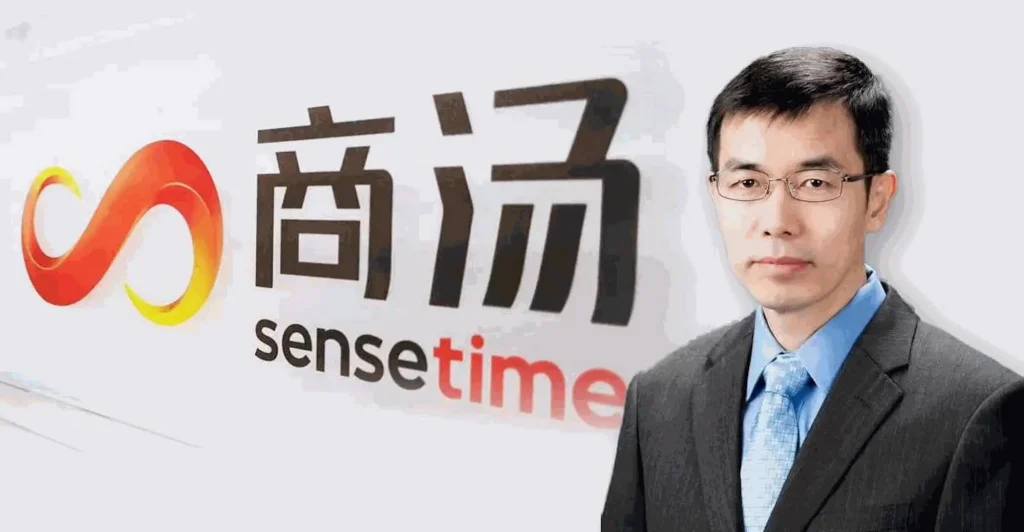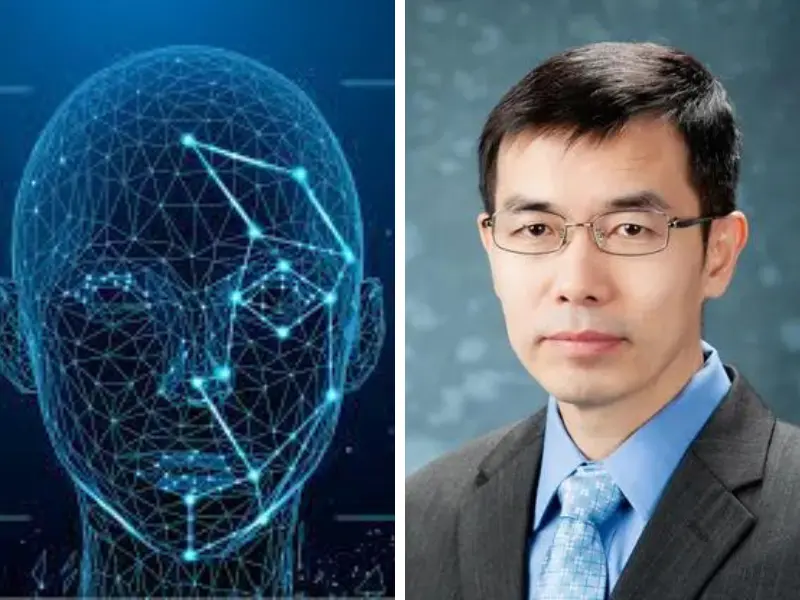- Tang Xiaoou, founder of SenseTime and a prominent figure in China’s artificial intelligence landscape, passed away on December 15, 2023. His pioneering contributions to computer vision, facial recognition, and the establishment of SenseTime as a leading AI company marked his lasting impact on the industry.
- SenseTime’s IPO in December 2021 was a sensational success, but concerns about the company’s profitability emerged. Tang Xiaoou’s passing raised uncertainties about the company’s future trajectory. Despite significant revenues, SenseTime consistently reported losses, and managing the challenges following Tang Xiaoou’s departure became a key focus.
- Tang Xiaoou, a scholar-entrepreneur, blended academic excellence with entrepreneurial success. His leadership style, commitment to talent, and contribution to AI research left an indelible mark on SenseTime’s culture. Despite financial challenges, optimism remains regarding SenseTime’s potential to navigate the post-Tang-Xiaoou era successfully.
On December 16th, it was announced that Tang Xiaoou, a prominent figure in the field of artificial intelligence in China and the founder of SenseTime, had passed away the previous day at the age of 55.
“With heavy hearts, we announce the sorrowful news that our beloved founder, AI scientist, director of Pudong Laboratory, director of Shanghai AI Laboratory, and professor at the Chinese University of Hong Kong, Tang Xiaoou, has left us forever at 23:45 on December 15, 2023, after ineffective medical treatment,” SenseTime announced in a condolence statement around 5pm on the 16th.
Also read: Is big data the future of AI?
Tang Xiaoou: Holder of diverse roles in the realm of AI and computer vision
Tang Xiaoou had many distinguished labels. In 2009, he was awarded the Best Paper Award at CVPR, becoming the first researcher in the Asia-Pacific region to receive this award. This achievement garnered widespread attention and acclaim in the field of computer vision.
In addition, Tang Xiaoou served as the editor-in-chief of the International Journal of Computer Vision (IJCV) and the chair of the International Computer Vision Conference. These roles not only demonstrated his profound academic contributions but also highlighted his outstanding contributions to advancing the discipline and international exchanges.
In China, Tang Xiaoou was not only the vice president of the Shenzhen Advanced Technology Research Institute of the Chinese Academy of Sciences but also the head of the Shanghai AI Innovation Center. His important responsibilities and leadership roles made him one of the outstanding representatives in the field of artificial intelligence in China.
Sculpting success: Tang Xiaoou’s visionary journey from computer vision to SenseTime
Another well-known achievement was founding SenseTime, acclaimed as the “leading dragon” among the “four small dragons” of AI in the Chinese market.
On December 30, 2021, SenseTime, hailed as the “first stock of AI,” officially went public on the Hong Kong Stock Exchange. On the first day of trading, the stock price rose by more than 22%. By the end of the day, SenseTime’s stock price had risen by 7.27%, closing at HKD 4.13 per share. Calculated this way, Professor Tang Xiaoou, holding 21.73% of the shares and being the largest shareholder of SenseTime, had a net worth exceeding HKD 30 billion.
Tang Xiaoou had expressed in an interview with the Southern Metropolis Daily that he had a strong interest in images from a young age, and this may have been the beginning of his involvement in computer vision research.
In 1990, Tang Xiaoou obtained a bachelor’s degree from the University of Science and Technology of China. The following year, he went to the United States for further studies and obtained a master’s degree from the University of Rochester. Later, in 1996, he pursued a Ph.D. at the Massachusetts Institute of Technology (MIT), during which he joined the Underwater Robotics Laboratory.
It is worth mentioning that the laboratory made remarkable contributions to the discovery of the sunken ship Titanic. It was during this project that Tang Xiaoou’s interest in artificial intelligence began to sprout and gradually grow.
After completing his Ph.D., he returned to China, joined the Department of Information Engineering at the Chinese University of Hong Kong as a faculty member, and established the Multimedia Laboratory known as the “CV Military Academy” at the Chinese University of Hong Kong. During the same period, Tan Xiaoou also worked for three years at Microsoft Research Asia, focusing on research in the field of computer vision.
One of the rare qualities of a genius may be gaining the trust of a group of geniuses. During his tenure at the Chinese University of Hong Kong, the laboratory attracted a group of rising stars in the AI industry, including the co-founders of SenseTime, Xu Li and Xu Bing.
In early 2014, Tang Xiaoou gained widespread recognition in the industry. After years of hard research and exploration by the team, his GaussianFace facial recognition algorithm achieved an accuracy of 98.52% on the LFW database, surpassing Facebook’s DeepFace algorithm (97.35%). This set a global record for surpassing human eye recognition accuracy for the first time and breaking through the red line of industrial applications.

Nurturing bonds: Tang Xiaoou’s journey from family moments to pioneering facial recognition at SenseTime
Finding a unique intersection between technology and family made Tang Xiaoou one of the pioneers in the development of artificial intelligence in China.
Starting in 2005, Professor Tang Xiaoou served as the head of the Vision Computing Group at Microsoft Research Asia (MSRA), frequently commuting between Beijing and Hong Kong. Because of this, he spent relatively little time with his 2-year-old son, Tan Zhiming, making him feel a lack of companionship. To address this, he decided to capture every moment they spent together by taking a large number of photos.
As the number of photos accumulated to tens of thousands, he faced a dilemma: how to accurately find those unforgettable moments in the massive collection of photos. As a technology professional, his inspiration came from the research field he had been engaged in for many years—seeking solutions through computer vision technology to intelligently classify and manage photos.
He and his colleagues began researching a project called “Photo Tagging,” using computer vision technology to categorize and organize photo albums. At that time, computer vision technology was not yet mature, and Professor Tang Xiaoou, with this simple and creative desire, pioneered a new era for the practical application and commercialization of facial recognition technology in China.
This became the innovation origin often mentioned by Tang Xiaoou in later speeches, with his son frequently appearing in presentations. In response, Tan Xiaoou jokingly remarked multiple times, “My speeches always start with photos because, first, this is my son, and second, he looks handsome.”
After gaining fame in the battle of 2014, SenseTime was officially established in October 2014, with the initial entrepreneurial team coming from the Multimedia Laboratory at the Chinese University of Hong Kong.
It is worth mentioning that Tang Xiaoou’s personal influence quickly attracted a group of top-tier capital players. Behind him stood a luxurious investment team, including IDG, SoftBank, Qualcomm, Tiger Fund, Alibaba, and more.
Tang Xiaou’s lasting legacy: A scholarly entrepreneur’s impact on SenseTime’s culture and the Chinese AI landscape
Despite acquiring the label of an entrepreneur in his personal identity, Tang Xiaou has consistently retained his scholarly essence. His mild demeanor, devoid of oppressive or assertive qualities, has left a lasting impact on SenseTime’s corporate culture.
In 2021, SenseTime went public in Hong Kong, and over the subsequent two years, the fate of the Chinese “AI Four Dragons,” with SenseTime as the representative, experienced ups and downs. They navigated through the industry’s downturn to emerge into the dawn of the era of large models.
To those around him, Tang Xiaou is perceived as a stand-up comedian “delayed” by the AI industry. In any speech regarding cutting-edge AI technology, he consistently manages to convey technical concepts in a refreshing and understandable language, bringing joy to the audience. According to him, original AI technology requires three core elements: a conducive innovation environment, respect for talent, and extensive academic exchange.
“Professor Tang’s reliability creates a talent black hole,” was how someone once described Tang Xiaou’s magnetic pull for talent. In practical terms, Tang Xiaou has long adhered to this theory. According to the company’s prospectus, as of the end of June 2021, the company had over 3,600 research personnel, constituting more than two-thirds of the total workforce. This reflects the company’s outstanding performance in technological innovation and talent attraction. Additionally, the company maintains the habit of core employees reading academic papers together at regular intervals.
Speaking about AI research, Tang Xiaou believes that the frontline of this industry is challenging, and before the advent of deep learning, nothing substantial was achieved. Therefore, when recruiting, he consistently emphasizes, “Join this industry, and I guarantee you’ll have a job for life because what we’re doing can’t be accomplished.”
In his final public speech, Tang Xiaou delivered a poignant statement, saying, “I didn’t meet you in the best times, but because I met you, I had the best times.” This also became his sincere blessing to the younger generation.
Perhaps it’s worth celebrating that Tang Xiaou’s decades-long pursuit of AI technology with his team’s spirit remains eternally preserved.
Sensational debut to lingering concerns: SenseTime’s rollercoaster journey from IPO success to financial challenges and the impact of Tang Xiaou’s passing
On December 30, 2021, SenseTime made its debut on the Hong Kong Stock Exchange at an offering price of $0.496 per share. On the listing day, the stock opened with a staggering 23% surge and continued to rise for the next four days, more than doubling its offering price and reaching a peak market capitalization of over $29.48 billion.
However, amidst the lamentations for Tang Xiaou’s passing, concerns linger about SenseTime’s future trajectory, especially as of now, the company has yet to achieve profitability. From 2018 to 2022, SenseTime’s revenues were $2.88 billion, $4.72 billion, $5.41 billion, $7.44 billion, and $5.82 billion, respectively. Despite these figures, the net profits attributable to the parent company were consistently in the red, with cumulative losses reaching $5.35 billion, $7.72 billion, $18.99 billion, $26.64 billion, and $9.29 billion. In the first half of 2023, the net loss amounted to $4.91 billion, with a total accumulated loss of $68.69 billion over five and a half years.
As Tang Xiaou, the soul of SenseTime, has departed, his absence is expected to impact the company’s day-to-day operations and future development. Tang Xiaou brought not only rich experience and profound expertise in business management but also extensive connections and resources in the field of artificial intelligence. Wang Peng, deputy researcher at the Beijing Academy of Social Sciences, suggests that his passing may influence certain decisions and developments within the company.Nevertheless, Guo Tao, angel investor and AI expert, expresses optimism, stating, “Considering that SenseTime is a company with strong technical capabilities and innovative prowess, as long as they can adeptly handle the challenges arising from Tang Xiaou’s passing, the company still has the potential to maintain a positive development momentum.”

